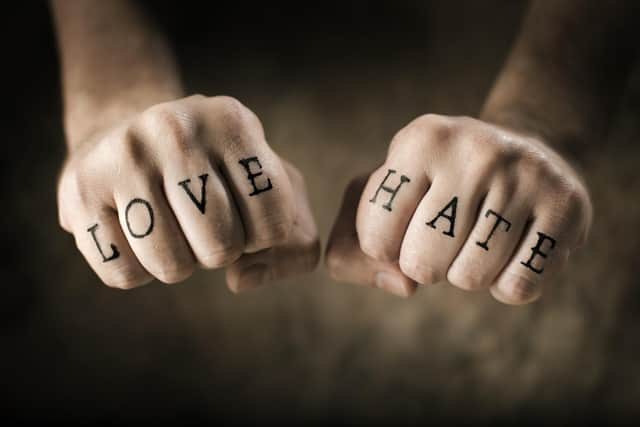'We should all stop and think before posting negative social media comments'
and live on Freeview channel 276
The majority of comments about this were incredibly positive. But one comment (which clearly showed the individual’s ignorance) particularly stood out for me and got me thinking of how much a lack of understanding of different cultural backgrounds can lead to bias. The comment referred to the person commenting not minding facial tattoos, but that the newsreader’s tattoo did not look good, and looked like she had tattooed a beard on herself. This was followed by a texting acronym that signified an expletive.
The Māori tattoo, or rather moko, as it is termed, is a unique expression of cultural heritage and identity of the Māori people (the indigenous Polynesian people of mainland New Zealand). The person’s comment showed a lack of even attempting to find out the significance of what this occasion meant. A quick search in Google would have enlightened the individual as to what it was.
Advertisement
Hide AdAdvertisement
Hide AdAnd this doesn’t just happen when it comes to different cultures. It happens where there is difference in people in other ways. It got me thinking about how many people make a judgement or an assumption about someone without knowing or understanding who they are, or why they are the way they are. Just because they do not fit an ideal that has been formed by a worldview that is not inclusive. Or the conditioned beliefs that that have been ingrained in them that people like them are better than people who are not like them.


As societies evolve and diversify, there becomes an awareness of what is no longer acceptable. It becomes apparent that change is needed and what was once viewed as normal, is in fact not. For example, I had a recent discussion with family members about certain comedy shows which were once considered funny and acceptable that are now seen for what they are, racist and sexist. Thankfully, these shows are deemed unacceptable and are no longer aired.
Now I hold my hands up and confess, I didn't know about the Māori tradition of moko. However, on seeing the article, I sought to educate myself. A quick search on the internet enlightened me and gave me an awareness of what it is about.
We all have biases that have been shaped by our culture, environments, and lived experiences. Our unconscious biases impact the decisions we make and our behaviour to other people. Some of us recognise that those biases may not be inclusive and seek to address that. Some people, unfortunately, do not. They don't stop to think that their way of thinking and behaving, may be derogatory or offensive to others.
Advertisement
Hide AdAdvertisement
Hide AdAs previously mentioned, the majority of comments on the post about the newsreader were very positive. People recognised the significance of what had occurred. They get it that representation matters, and that for other indigenous people in New Zealand, seeing that representation helps to create belonging. The same applies in Sheffield, representation by underrepresented groups in all areas of society helps those groups to feel like they belong.
Another comment about the newsreader on another news website stated that it was unattractive. Again, on this news site, most comments were positive. However, that one and a few others clearly lacked an understanding and appreciation of different cultures, or a failing to try and understand and appreciate the significance of the occasion. Although attractiveness is subjective, historically, what has been deemed to be attractive here in the UK is based on an ideal that is not inclusive.
If people have been conditioned to believe that this said ideal is attractive, anything that does not match this, is unattractive to them. This accounts for one reason why we have so many people with body confidence issues. They too have been conditioned to believe that they don’t fit what is considered to be the ideal when it comes to beauty, and therefore, they are not good enough.
Thankfully this ideal of what is considered beauty that is not inclusive is starting to change. We are increasingly seeing images of people who are diverse in terms of colour, age, size, ability, look, and more. Not only does this give more representation, it also helps to give an appreciation of the beauty in others who are different to us.
Advertisement
Hide AdAdvertisement
Hide AdA lack of knowledge and understanding is what causes comments like those mentioned above about the Māori tattoo. It is that lack of knowledge and understanding that feeds inequality. If people are offended by particular terms or treatment, rather than gaslighting them or being dismissive, we need to stop and ask ourselves why that is. If we all stopped to think before engaging our mouths (or in this case keypads), there would be less, unfair treatment of others.
So, the next time you are about to post a negative comment on social media about someone because they are different to you, pause and ask yourself, where is that view coming from, and how inclusive is it.